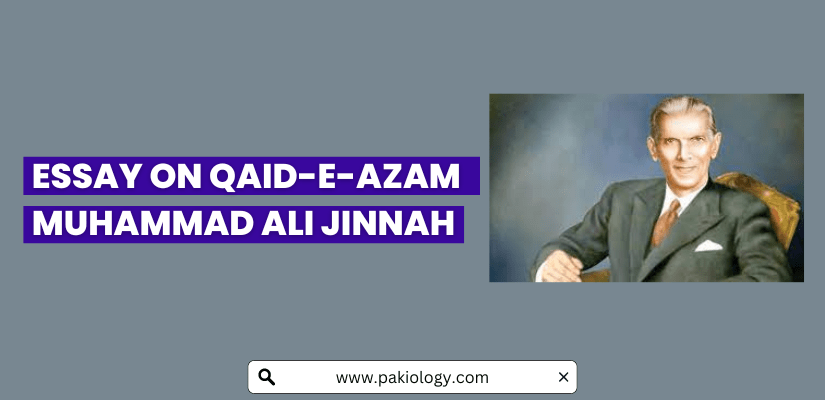Quaid-e-Azam Muhammad Ali Jinnah was a prominent political leader and the founder of Pakistan. Born in Karachi in 1876, Jinnah studied law and became a successful lawyer before entering politics. Over the course of his career, he played a pivotal role in the creation of the country of Pakistan and served as its first Governor-General.
Jinnah’s political career began in 1906 when he joined the Indian National Congress, a political party that sought greater autonomy for India within the British Empire. However, Jinnah quickly became disillusioned with Congress and its leadership, and he left the party in 1913.
In 1919, Jinnah joined the All-India Muslim League, a political party that represented the interests of India’s Muslim population. At the time, many Muslims felt that their rights and interests were not being adequately protected by Congress, and they saw the Muslim League as a way to promote their own political agenda.
Jinnah was a strong advocate for the rights of Muslims in India. In a speech to the All India Muslim League in 1943, he said,
“I have always maintained that the Muslims are a nation apart. The Hindu and the Muslim are two major nations by any definition or test of a nation. We are a nation of a hundred million, and what is more, we are a nation with our own distinctive culture and civilization, language and literature, art and architecture, names and nomenclature, sense of value and proportion, legal laws and moral code, customs and calendar, history and tradition, aptitudes and ambitions.”
In 1940, the Muslim League adopted the Lahore Resolution, which called for the creation of a separate Muslim state in the northwestern and northeastern regions of India. This marked the beginning of the movement for the creation of Pakistan. Jinnah worked tirelessly to achieve this goal, negotiating with the British government and other political parties to secure support for the creation of Pakistan.
In a speech to the Constituent Assembly of Pakistan in 1947, Jinnah said,
“You are free; you are free to go to your temples, you are free to go to your mosques or to any other place of worship in this State of Pakistan. You may belong to any religion or caste or creed – that has nothing to do with the business of the State.”
Jinnah’s efforts finally paid off in 1947 when the British government agreed to partition India and create the independent state of Pakistan. Jinnah became the first Governor-General of Pakistan, and he worked to establish the country’s government and institutions. However, he faced numerous challenges, including a refugee crisis, economic instability, and tensions with India over the disputed territory of Kashmir.
In a speech to the Constituent Assembly of Pakistan in 1948, Jinnah said,
“We are starting with this fundamental principle that we are all citizens and equal citizens of one state. Now I think we should keep that in front of us as our ideal and you will find that in course of time Hindus would cease to be Hindus and Muslims would cease to be Muslims, not in the religious sense, because that is the personal faith of each individual, but in the political sense as citizens of the State.”
Despite these challenges, Jinnah remained committed to building a strong and prosperous Pakistan, and he worked tirelessly to lay the foundations for the country’s future success. He believed that Pakistan should be a country where all citizens, regardless of their gender, religion, or ethnicity, were treated equally and had equal opportunities.
In a speech to the Constituent Assembly of Pakistan in 1947, Jinnah said,
“I have full faith in the future of Pakistan and the destiny of our people. You have to stand guard over the development and maintenance of Islamic democracy, Islamic social justice, and the equality of manhood in your own native soil.”
Jinnah’s legacy as the founder of Pakistan is undeniable. He was a visionary leader who saw the potential for a separate Muslim state and worked tirelessly to achieve it. His efforts were instrumental in the creation of Pakistan, and he remains an important figure in the country’s history. He will always be remembered as the father of the nation.
Find more Essays on the following Topics


0 Comments